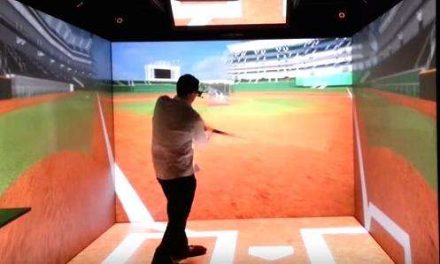The 8th annual BAFTSS conference, to be held at the University of St Andrews on 16-18 April 2020, will take as its theme “Rethinking Screen Cultures”. At a time when Film, Screen and TV Studies is placing increasing emphasis on interdisciplinary methodologies and fresh objects beyond the traditional canon, this conference seeks to foreground new directions and methodologies in the discipline.
These ‘new’ directions often move beyond the screen and this conference will explore the varied ways in which screen media, from early industrial film to VR, is produced, distributed, circulated, exhibited, archived and consumed. Inviting papers and interventions from an array of geographical and historical contexts, this conference seeks to look beyond; beyond what’s happening on screens, beyond the canon to marginalised/ forgotten/lost phenomena, beyond the traditional methodologies of ‘film studies’ and ‘media studies’ towards other disciplinary approaches, beyond the screen to other determinants of audiovisual experience (including sound, technologies, labour and materialities), and beyond academic traditions towards creative and critical collaborations.
The need for film and media studies has never been greater, as we seek to critically understand and analyse the ways in which all forms of media function and shape the world around us. Screen Cultures shape our political and social frames of reference, and are frequently at the centre of contemporary global debates, whether around the environment, global finance, citizen activism or ‘fake news’. How then can our discipline – and screen media more broadly – challenge, deconstruct and critically analyse a world order historically sustained by screen media?
The first confirmed plenary speaker is Professor May Adadol Ingawanij (Professor of Cinematic Arts, Westminster School of Arts). Additional keynotes to be confirmed.
We invite submissions for papers, workshops or panels of three papers, in English, within the areas outlined above. BAFTSS is committed to issues of equality, diversity and inclusivity and we particularly encourage those proposing pre-convened panels to be mindful of this.
Topics might include:
- Labour of Screen Culture: How does media supplement power? How do off screen cultures, production and work beyond the screen (for example, “below the line” workers), shape on-screen media?
- Uses of Screen Culture: “Useful” Screens, particularly in non-theatrical and non-entertainment traditions (industrial film, advertising, science film, instructional film, activist video, online campaigns).
- Archaeologies of Screen Culture: from precinema to VR and Video Games; cultures of intermediality and interactivity, fandom, and social media.
- Material Aspects of Screen Culture: technologies, materials, extractions and ecologies.
- Aesthetic Practices of Screen Culture: animation, colour, fashion, photography and the influence of wider artistic and media contexts.
- Acoustic Dimensions of Screen Culture: The often-overlooked place of sound, and sound practitioners, within screen culture, from sound design to the political power of voice.
- Non-Fiction Forms of Screen Culture: Documentary cultures and infrastructures, from financing to production, programming, and exhibition as well as the films themselves.
- Networks of Screen Culture: Institutions and groups including film and media societies, clubs, online communities, collectives and activist groups.
- Archiving Screen Culture: The changing role of archives (including digitisation and preservation) and the politics of preserving material screen culture.
- Exhibition as Screen Culture: from early mobile forms of exhibition to cinema in the age of Netflix; from film festivals to cell-phones, aeroplanes to online media.
- Social Dimensions of Screen Culture: How are screen cultures shaped by questions of intersectionality? How has researching, archiving and curating LGBTQ+ screen histories opened up the canon and re-shaped the discipline?
- Ecologies of Screen Culture: How have screen cultures responded to increasingly urgent questions of ecology and environmental crisis?
- Geographies of Screen Culture: What can ‘new’ directions and methodologies in Film Studies offer for work on specific national/linguistic traditions and vice versa?
- Screen Culture in Education: What role can screen media play in schools and higher education today and how might recent developments in the field (methodologies, objects, approaches) better inform pedagogy?
- Absences from Screen Culture: How do we account for, and challenge, structuring absences? Are there forgotten figures (stars, producers, exhibitors) or communities that can help revise screen history?
Details about the conference and forms for individual proposals and panels can be downloaded here: https://baftss.org/conf-2019
Information about the conference fees and any travel bursaries will follow shortly.
Completed proposal forms should be sent to baftssconference@gmail.com by Monday 16 December 2019. You will be notified whether your proposal has been accepted in January 2020.





